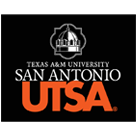Document Types
Individual Presentation
Start Date
2-24-2024 11:20 AM
End Date
2-24-2024 11:50 AM
Track
Language Attitudes/Ideologies
Abstract
Tile of presentation
¡Nuestra historia es importante! Centering Ethnic Studies in the Spanish as a Heritage Language Classroom
Abstract for conference program
In the first part of this presentation, I will share my testimonio, which centers my lived experiences as a heritage speaker who became a SHL educator. In the second part I will share a unit rooted in Ethnic/Chicano studies that I designed and have implemented in my SHL classroom.
Presentation description
For numerous heritage speakers, Spanish as a Heritage Language (SHL) classes are their first opportunity to further develop their heritage language in an academic setting. SHL classes have evolved from being rooted in an eradication approach, that aimed to replace students’ home language practices, to a critical approach that centers the language and cultural practices of heritage speaking students. Although SHL scholars’ theoretical and practical efforts have pushed the SHL field to be grounded in social justice, not much research has documented the intersections between Ethnic Studies and SHL classes. SHL classes were established as a result of the Chicano and Puerto Rican Movements of the late 1960s (Aparicio, 1997), yet this history and literature is hardly ever included in SHL curriculum. There is research proving that Ethnic Studies contributes to the academic achievement of Students of Color, yet limited research explores the implementation of Ethnic/Chicano Studies in the SHL classroom.
Drawing from Chicana Feminist theory and methodologies, I will share my testimonio, including reflections of my lived experiences as a heritage speaker turned SHL educator. I will start by sharing my journey of coming to critical consciousnesses which facilitated my understanding that I experienced a Eurocentric education that excluded my history and language and that of other U.S. Latinx communities across the educational pipeline. I will share mi travesía to reclaim my history, language and culture and how these experiences directly inform my SHL teaching practices. Afterwards, I will share a unit I designed for the SHL classroom that centers Ethnic Studies. I will end by providing a pedagogical reflection of the unit implementation. This unit provided my heritage speaking students with an opportunity to see not only their language and culture but also their histories at the core of our SHL classroom.
Three to five learning objectives
The audience will be able to...
-
Reflect on the importance of designing a curriculum that is reflective of their students ethnic, linguistic and cultural backgrounds.
-
Understand the importance of reflecting on how their lived experiences can influence their teaching practices
-
Utilize the unit provided as a resource to begin centering Ethnic/Chicano studies in their SHL classroom
Recommended Citation
Domínguez-Fret, Nancy, "¡Nuestra historia es importante! Centering Ethnic Studies in the Spanish as a Heritage Language Classroom" (2024). 11th National Symposium on Spanish as a Heritage Language. 5.
https://digitalcommons.tamusa.edu/heritage_spanish/SCHEDULE/Saturday/5
Included in
Digital Humanities Commons, Feminist, Gender, and Sexuality Studies Commons, Language Interpretation and Translation Commons, Latin American Languages and Societies Commons, Social Justice Commons, Spanish and Portuguese Language and Literature Commons
¡Nuestra historia es importante! Centering Ethnic Studies in the Spanish as a Heritage Language Classroom
Tile of presentation
¡Nuestra historia es importante! Centering Ethnic Studies in the Spanish as a Heritage Language Classroom
Abstract for conference program
In the first part of this presentation, I will share my testimonio, which centers my lived experiences as a heritage speaker who became a SHL educator. In the second part I will share a unit rooted in Ethnic/Chicano studies that I designed and have implemented in my SHL classroom.
Presentation description
For numerous heritage speakers, Spanish as a Heritage Language (SHL) classes are their first opportunity to further develop their heritage language in an academic setting. SHL classes have evolved from being rooted in an eradication approach, that aimed to replace students’ home language practices, to a critical approach that centers the language and cultural practices of heritage speaking students. Although SHL scholars’ theoretical and practical efforts have pushed the SHL field to be grounded in social justice, not much research has documented the intersections between Ethnic Studies and SHL classes. SHL classes were established as a result of the Chicano and Puerto Rican Movements of the late 1960s (Aparicio, 1997), yet this history and literature is hardly ever included in SHL curriculum. There is research proving that Ethnic Studies contributes to the academic achievement of Students of Color, yet limited research explores the implementation of Ethnic/Chicano Studies in the SHL classroom.
Drawing from Chicana Feminist theory and methodologies, I will share my testimonio, including reflections of my lived experiences as a heritage speaker turned SHL educator. I will start by sharing my journey of coming to critical consciousnesses which facilitated my understanding that I experienced a Eurocentric education that excluded my history and language and that of other U.S. Latinx communities across the educational pipeline. I will share mi travesía to reclaim my history, language and culture and how these experiences directly inform my SHL teaching practices. Afterwards, I will share a unit I designed for the SHL classroom that centers Ethnic Studies. I will end by providing a pedagogical reflection of the unit implementation. This unit provided my heritage speaking students with an opportunity to see not only their language and culture but also their histories at the core of our SHL classroom.
Three to five learning objectives
The audience will be able to...
-
Reflect on the importance of designing a curriculum that is reflective of their students ethnic, linguistic and cultural backgrounds.
-
Understand the importance of reflecting on how their lived experiences can influence their teaching practices
-
Utilize the unit provided as a resource to begin centering Ethnic/Chicano studies in their SHL classroom

